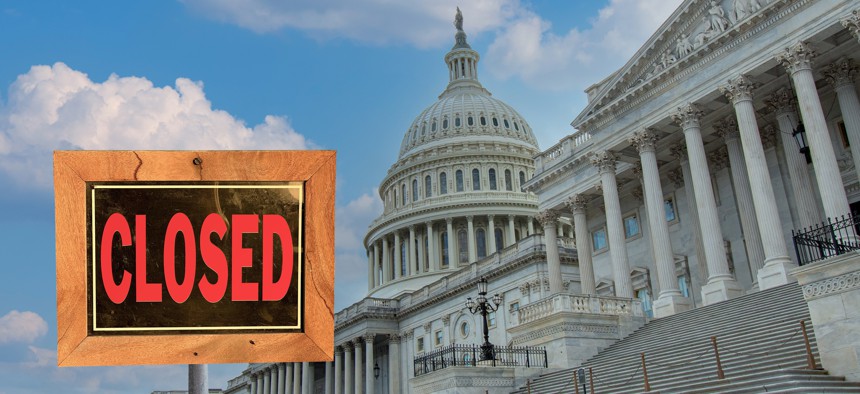The brinkmanship around government shutdowns is an exercise in futility

Gettyimages.com/ Douglas Rissing
Shutdowns do nothing positive for anyone and only waste time, energy and resources.
If the federal government shuts down next weekend, it will be the 15th such event since 1980.
Eleven of the 14 shutdowns to-date have been for less than a week. The longest on record is also the most recent at 34 days, stretching from the end of 2018 into early 2019.
Andrew Lautz, senior policy analyst at the Bipartisan Policy Center, sees this overarching lesson from shutdowns – They don’t work.
With all actual and threatened shutdowns, there is a large dose of brinkmanship at play with some members of Congress refusing to sign a budget deal unless certain conditions are met.
This year, the far-right element of the Republican party wants to cut domestic spending and pass tougher immigration laws.
Something is always in play but nothing substantial is achieved for the side making demands, Lautz said.
“Shutdowns don’t work, but there is real economic damage,” he said.
That damage can reach the billions.
Not counting the contractor workforce, a government shutdown furloughs 850,000 federal employees. Another 100,000 feds work without pay.
The economic damage may only be 0.1% or 0.2% of the Gross Domestic Product. But a shutdown has a disproportionate impact on certain sectors, such as small business contractors, Lautz said.
There is also the opportunity cost of the time wasted both in the run-up to a shutdown and the efforts to get out of a shutdown and recover from it.
Frankly, shutdowns aren’t about the budget but politics.
As Lautz explained, the Republicans in the House and the Democrats in the Senate hold very delicate majorities. Neither can act unilaterally.
Any resolutions to avert a shutdown or climb out of one will take a bipartisan effort.
Lautz’s group, the Bipartisan Policy Center, is advocating for a law that would basically create automatic continuing resolutions. It has some bipartisan support.
Sens. Maggie Hassan (D-New Hampshire) and James Lankford (R-Oklahoma) spoke at a BPC briefing on Wednesday and are co-sponsoring the legislation.
The law has been talked about for several years, but has not generated enough momentum.
Even if it is among the best idea in good government, I’m not expecting any groundswell of support that would carry the day.
The message for the rest of us to hang on: follow this advice from the Professional Services Council and hope for the best.


